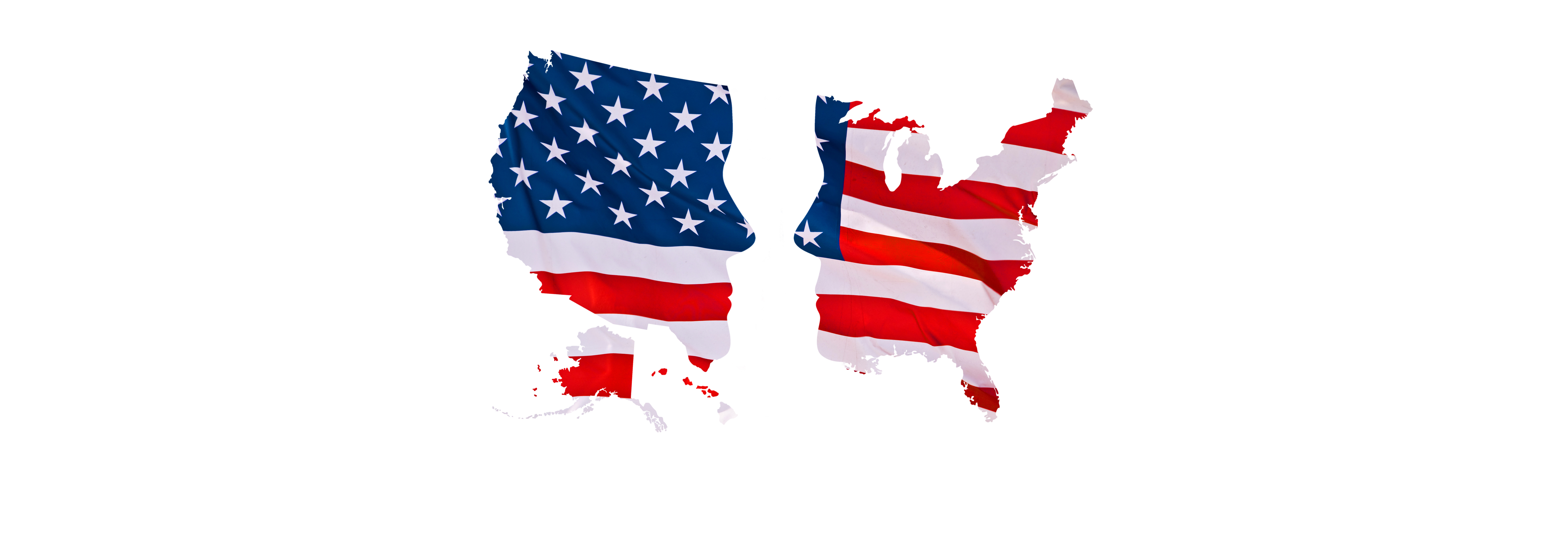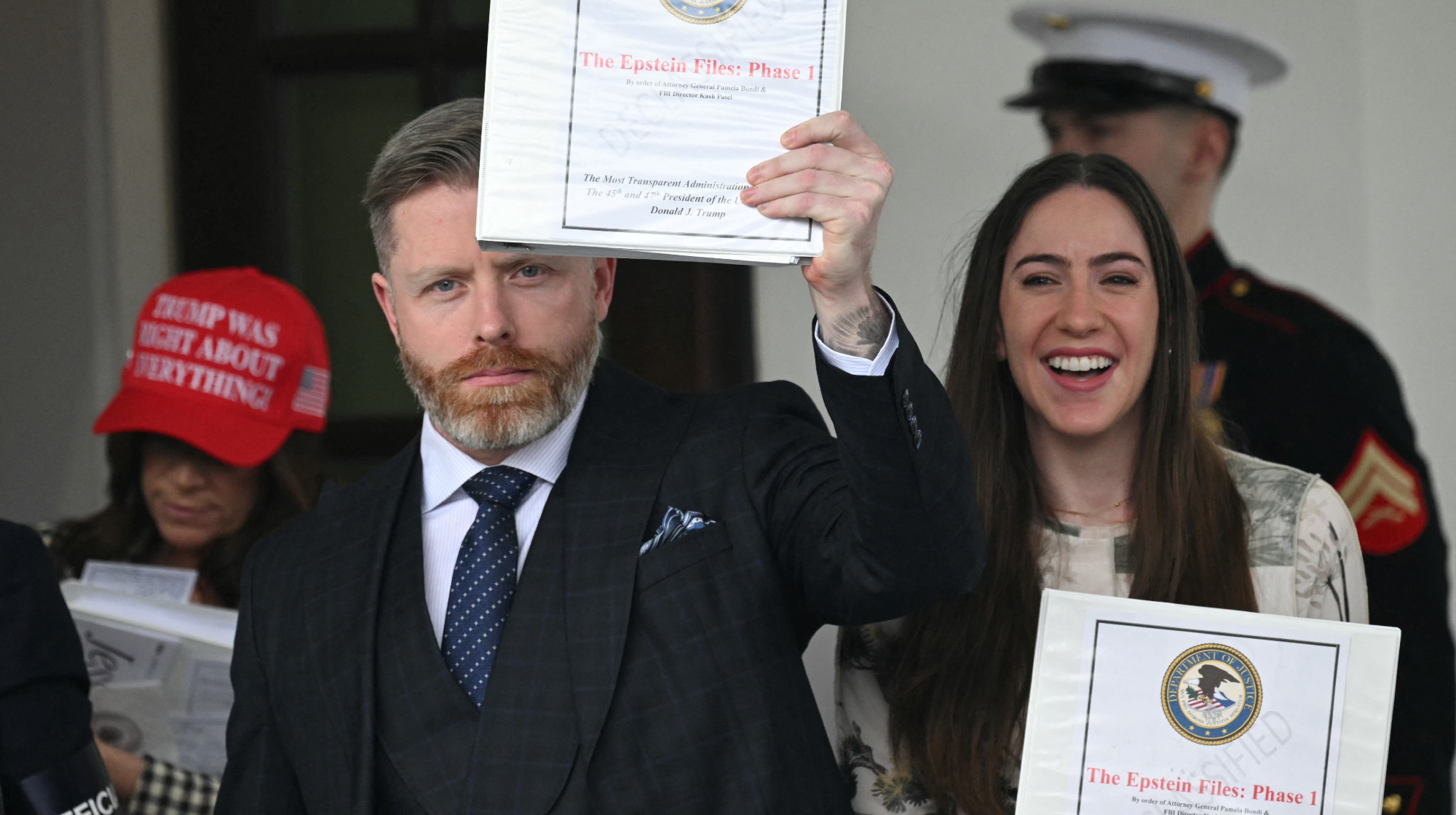The politicization of everything
And how it's ruining America and killing the common good


Try to pick the most outrageous outrage of the 2016 presidential race. It's hard, I know. Is it the Democratic nominee running for the highest office in the land while the FBI ponders whether she should be indicted? Or the blatantly illiberal policies proposed by her opponent? Or his reality-show campaign, sleazebag temperament, and casual misogyny? Or the racists and anti-Semites who have rallied to his side and hurled unprecedented abuse at any and all who oppose him?
All of those things are bad. But there's a broader trend that might even be worse: the total politicization of everything.
Political radicals have long proclaimed that "everything is political." But both classical liberalism (the kind I strive to espouse and affirm in my writing) and Burkean conservatism deny this, claiming instead that politics is merely one facet of life. It's an important one — one that takes responsibility for our collective lives and in doing so reveals crucially important dimensions of human nature. But it's still only a part. Large aspects of our lives — family, friends, love, play, work, and worship — properly transcend politics and take place according to their own logic, outside of political considerations. The legitimacy of any particular government rests, in fact, on its willingness to limit or restrain its own powers, allowing non-political spheres of life to operate without, or at least with a minimum of, political interference.
Subscribe to The Week
Escape your echo chamber. Get the facts behind the news, plus analysis from multiple perspectives.

Sign up for The Week's Free Newsletters
From our morning news briefing to a weekly Good News Newsletter, get the best of The Week delivered directly to your inbox.
From our morning news briefing to a weekly Good News Newsletter, get the best of The Week delivered directly to your inbox.
But classical liberalism and Burkean conservatism limit politics in another sense, by upholding the rule of law and encouraging institutions and public servants in the political system to act with an eye not to partisan advantage but to the good of the political community as a whole, both at the present moment and on into the future. These institutions and public servants strive to defend the common good, the parts of our collective life that persist through and beyond specific elections. This is supposed to be the role of law enforcement officials as well as those who interpret, apply, and enforce statutes and the nation's fundamental law, the Constitution.
Of course down through the years those who hold these offices have often fallen short of the ideal of public-spirited impartiality, trying to manipulate the law and its enforcement to gain political advantage. That's what we call "corruption," a vice or failing that loses all meaning if its opposite, the virtue of impartiality or fairness, loses all force — if it becomes a hollow ideal that's never achieved in practice.
The worst thing about the election of 2016 may well be that it has contributed to the appearance that no one in our political system speaks for the whole, for the common good, for the rule of law — that no one even strives for impartiality, and so everyone (and even "the system" itself) is tainted by corruption.
Consider the latest and perhaps most egregious example from the interminable presidential campaign.
The FBI director, James Comey, claims to be acting impartially in attempting to determine if Democratic presidential nominee Hillary Clinton broke the law in setting up and maintaining an unsecured computer server in her home while serving as secretary of state. When he declared back in July that Clinton would not be prosecuted, despite the fact that her handling of "very sensitive, highly classified information" was "extremely careless," Democrats, including Clinton herself, praised him for his fairness and neutrality.
But now that Comey has announced that newly unearthed evidence has prompted him to renew the investigation, Democrats are universally excoriating him as a partisan hack, a bumbling idiot, or both. This includes the Clinton campaign itself and supposedly independent liberal commentators and analysts in the media, all of whom seem to think that Comey should have kept his mouth shut about any further investigation of the email matter until after the election. As it is, he may well be guilty of rigging the election in Trump's favor.
The right, meanwhile, has now backtracked from its summertime denunciations of Comey for aiding and abetting the Clinton campaign. Instead, the Republican nominee and his surrogates praise the FBI director for his statesmanlike pursuit of justice and truth in informing Congress that the investigation has been reopened.
Now let's imagine a counterfactual: Comey sits on the news of his intent to reopen the investigation until three days after the election, making it clear that he withheld the information so that he wouldn't influence the outcome. Would the FBI director then be praised for his high-mindedness? Not at all! The left would now excoriate him for continuing to do the bidding of the vast right-wing anti-Clinton conspiracy machine by placing a cloud of indictment over the head of the president-elect, while the right would (justifiably) claim that Comey's silence may well have rigged the just-concluded election in her favor.
There is no way for Comey to emerge from this situation looking anything other than biased — a shill for one side or the other. The partisan forces swirling around his investigation are simply too intense. Which is what was bound to happen once the Democrats chose as their presidential nominee a candidate who's under investigation by the FBI.
The point isn't that Comey made no errors in handling the Clinton investigation. It's that no law enforcement official tasked with such an investigation could have passed through the political vortex of a highly polarized presidential election in the age of 24/7 digital news without appearing to play favorites, without looking like a political actor in the guise of an impartial judge. The political stakes are simply too high, the ability to detect, amplify, and publicize microscopic (and perhaps imaginary) signs of bias too easy.
The damage to our civic life is real. The more seemingly impartial public figures are accused of covert bias, the more citizens begin to suspect that everything is political, that no one ever rises above partisan passions. And the more citizens begin to doubt the possibility of rising above partisan passions, the less they try to do so themselves — or to expect any better from public officials. Everyone has a political agenda. No one is fair-minded or concerned with the impartial truth.
When everything is political, nothing is held in common, admired, and understood in the same terms by all. And a nation in which nothing is held in common, admired, and understood in the same terms by all is less a community than an aggregate of warring factions jostling for advantage, striving for a total victory in which those on the other side of the battle are permanently vanquished.
Less than a week out from the 2016 presidential election, that sounds an awful lot like an accurate description of the sorry state of our national disunion.
A free daily email with the biggest news stories of the day – and the best features from TheWeek.com
Damon Linker is a senior correspondent at TheWeek.com. He is also a former contributing editor at The New Republic and the author of The Theocons and The Religious Test.
-
 Nigeria's 'baby factories': a hidden crisis
Nigeria's 'baby factories': a hidden crisisA secretive network sees women lured, locked upa nd forced to give birth for profit
-
 Trump trashes supporters over Epstein files
Trump trashes supporters over Epstein filesspeed read The president lashed out on social media following criticism of his administration's Jeffrey Epstein investigation
-
 Too Much: London-set romantic comedy from Lena Dunham
Too Much: London-set romantic comedy from Lena DunhamThe Week Recommends Megan Stalter stars as a 'neurotic' New Yorker who falls in love with a Brit
-
 The last words and final moments of 40 presidents
The last words and final moments of 40 presidentsThe Explainer Some are eloquent quotes worthy of the holders of the highest office in the nation, and others... aren't
-
 The JFK files: the truth at last?
The JFK files: the truth at last?In The Spotlight More than 64,000 previously classified documents relating the 1963 assassination of John F. Kennedy have been released by the Trump administration
-
 'Seriously, not literally': how should the world take Donald Trump?
'Seriously, not literally': how should the world take Donald Trump?Today's big question White House rhetoric and reality look likely to become increasingly blurred
-
 Will Trump's 'madman' strategy pay off?
Will Trump's 'madman' strategy pay off?Today's Big Question Incoming US president likes to seem unpredictable but, this time round, world leaders could be wise to his playbook
-
 Democrats vs. Republicans: which party are the billionaires backing?
Democrats vs. Republicans: which party are the billionaires backing?The Explainer Younger tech titans join 'boys' club throwing money and support' behind President Trump, while older plutocrats quietly rebuke new administration
-
 US election: where things stand with one week to go
US election: where things stand with one week to goThe Explainer Harris' lead in the polls has been narrowing in Trump's favour, but her campaign remains 'cautiously optimistic'
-
 Is Trump okay?
Is Trump okay?Today's Big Question Former president's mental fitness and alleged cognitive decline firmly back in the spotlight after 'bizarre' town hall event
-
 The life and times of Kamala Harris
The life and times of Kamala HarrisThe Explainer The vice-president is narrowly leading the race to become the next US president. How did she get to where she is now?
